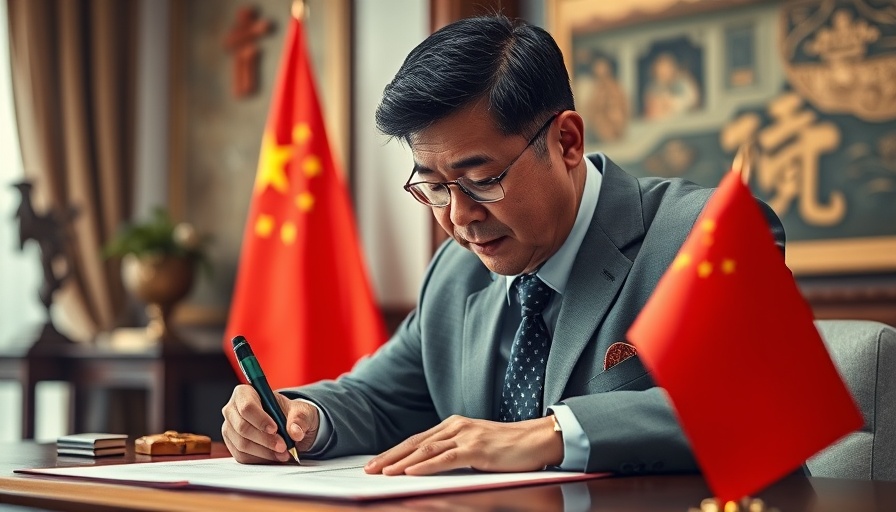
Trump's Stance on U.S.-China Trade Relations: A Call for Balance
In a recent commentary, former President Donald Trump stated that the United States would not engage in trade negotiations with China until the significant trade deficit is addressed. This declaration highlights the ongoing tensions between the two economic giants and sheds light on the principles that are shaping U.S. trade policy under his influence.
Understanding the Trade Deficit: What It Means for Americans
The trade deficit occurs when a country's imports exceed its exports, and the U.S. has been grappling with a substantial deficit in its trade with China. In 2020 alone, the deficit soared to nearly $310 billion. Trump argues that this discrepancy harms American manufacturing jobs and competitiveness. Many economists maintain that resolving the trade imbalance could bolster U.S. jobs and improve the overall economy.
Historical Context and Global Economic Dynamics
The U.S.-China trade relationship has been contentious for decades, marked by numerous disputes over tariffs and trade practices. Trump's imposition of tariffs on Chinese goods was part of a strategy aimed at recalibrating trade dynamics, with the intent to protect U.S. manufacturers. However, these tariffs have indirectly led to higher prices for American consumers.
Tariffs and Their Impact on the U.S. Economy
The question of tariffs raises a significant debate: do they genuinely protect domestic jobs as intended, or do they burden consumers with higher costs? While some industries may benefit from reduced competition, others face increased prices and diminished access to global markets. This dichotomy is part of the larger narrative surrounding Trump's trade policies, as advocates and critics weigh the benefits and drawbacks.
Future Predictions: The Road Ahead for U.S.-China Relations
Looking forward, the path for U.S.-China relations is uncertain. Should the Biden administration adopt a more conciliatory approach, it could shift the trade dynamics significantly. Trade experts suggest that the ongoing negotiations may focus less on tariffs and more on establishing fair trading practices that could benefit both nations.
Counterarguments: Different Perspectives on Trade Policy
While Trump's aggressive approach to trade with China resonates with a significant portion of the American public, many economists argue that it may not be the most effective method. They emphasize the importance of cooperation over confrontation. By striking a balance, both nations could potentially foster a healthier economic alignment.
Making Informed Decisions: What Citizens Should Know
As citizens, understanding these complex interactions is crucial. The decisions made by leaders and policymakers will have far-reaching consequences not just for businesses, but for everyday consumers as well. Whether it concerns job security or the prices of everyday goods, the outcomes of trade negotiations can significantly affect individuals' lives.
Emotional and Human Interest Aspects
The implications of trade policies extend beyond numbers; they touch real lives. American workers who could potentially benefit from renewed manufacturing jobs view these negotiations with hope. Conversely, those in sectors adversely impacted by tariffs live with uncertainty. This human element adds depth to the otherwise dry discourse on trade.
Conclusion: The Importance of Trade Discussions
As trade talks continue, it is imperative for Americans to stay informed and voice their opinions. Engaging in discussions about trade policies can help influence future outcomes that directly affect our economy. This knowledge empowers consumers and workers to better advocate for their needs and interests in an evolving global economy.
 Add Element
Add Element  Add Row
Add Row 



Write A Comment